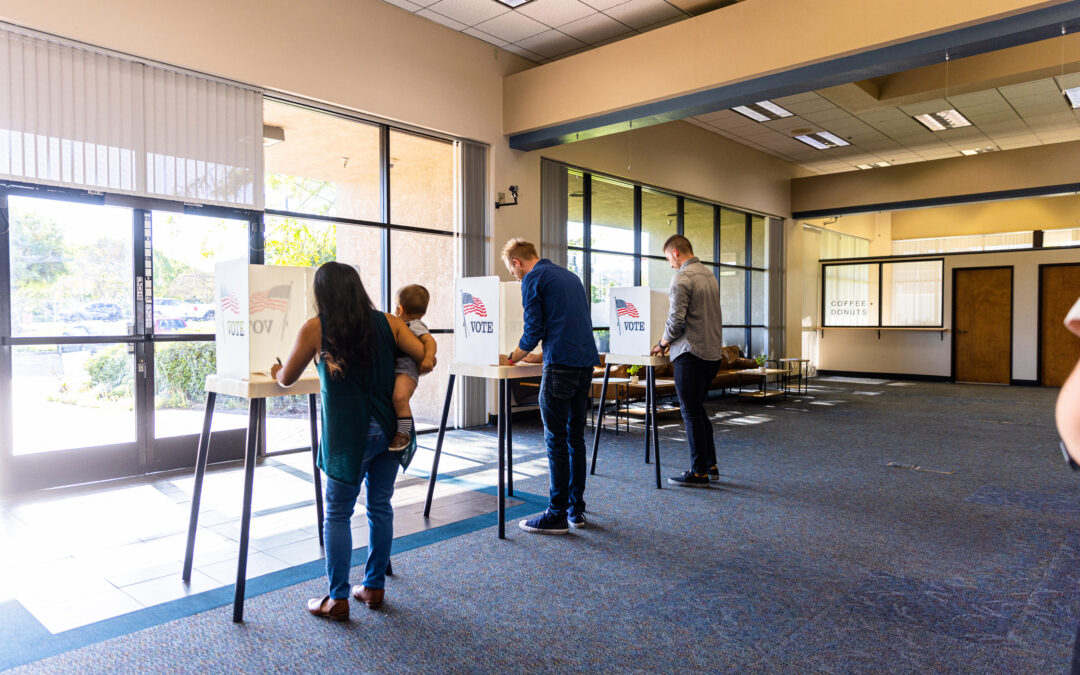One of the benefits of community association living is how people with diverse opinions and beliefs can coexist. As election season approaches, these differences can escalate into conflicts, testing the community’s harmony. As November draws near, it is crucial that community association leaders understand how to handle this tricky topic.
Cang N. Le, a partner with California-based Tinnelly Law Group, discussed the topic during a recent CAI Greater Los Angeles Chapter event. Sabrina Hart Neve, CMCA, and Cassandra Dyer, CMCA, AMS, both with FirstService Residential, hosted the Q&A.
Cassandra Dyer: With respect for political views, can the association ask residents to halt political demonstrations during election season?
Cang Le: It depends on the state you’re in. California is a very diverse state, where the legislature is very protective of the right to free speech and petition. Section 4515 of the Civil Code prohibits a homeowners association from not allowing a resident to use a common area for any purpose, but there are some caveats in the law. Though you can’t say no to a political demonstration, you can apply your regular common area rules to any event held in a common area. So you can say it must be peaceful, and you can limit the time. For example, you can enforce the rule that only one event be held at a time, so that two groups don’t protest simultaneously, which can cause chaos.
Sabrina Hart Neve: Is there anything associations can do regarding social media and free speech? If a resident or board member is worried about their safety, can a board or manager take steps to mitigate that?
CL: An association cannot prohibit the homeowner from going online and using social media for anything related to community living, elections, public office, recalls, or any other issues of concern to members or residents, as there is a serious protection of free speech. However, there is a line that can be drawn if there are any threats of violence.
Regarding defamation, the law considers board members and managers to be limited public figures, which basically means you are considered local celebrities in your community. When you are a local celebrity, it is to be expected that people will say things about you that you don’t like, and there is not necessarily legal protection for this, which is why people in these roles need to have thick skin.
If a manager or board member is concerned about defamation and wishes to respond, you can respond but should do so professionally. Don’t respond in the same chain on social media. Instead, go through your website or management company.
If there ever becomes a threat of violence or an incident of personal or civil harassment, however, the law does provide protection, and managers and board members can absolutely pursue legal action. (Le says restraining orders may be appropriate in these circumstances).
CD: If an association is to become a public polling location during election season, do its facilities need to be compliant with the Americans with Disabilities Act?
CL: The Americans with Disabilities Act only applies to public places. Homeowners associations by nature are private corporations, so only if an association opens its facilities to the public do ADA laws become applicable, though there is some nuance to this. The act does not require that you retrofit your entire community to become compliant if you open it up to the public, however, if you are doing a remodel anyway and are opening to the public, you will be required to make that remodel compliant.
Proceed with caution, though, because if you do open a facility to the public and it is not compliant, if that facility becomes a problem for someone with a disability, you are making yourself liable to the act. So, if you want to host a polling location, tennis lessons, swim lessons, or anything else for the public, it would benefit you to hire a contractor to do an evaluation of your facility.
“Being nice always helps,” Le says. “Being reasonable always helps. If someone shows up and they need an accommodation, it always behooves the association to do anything they can.”
>>Read more about political signs and flags in community associations.


